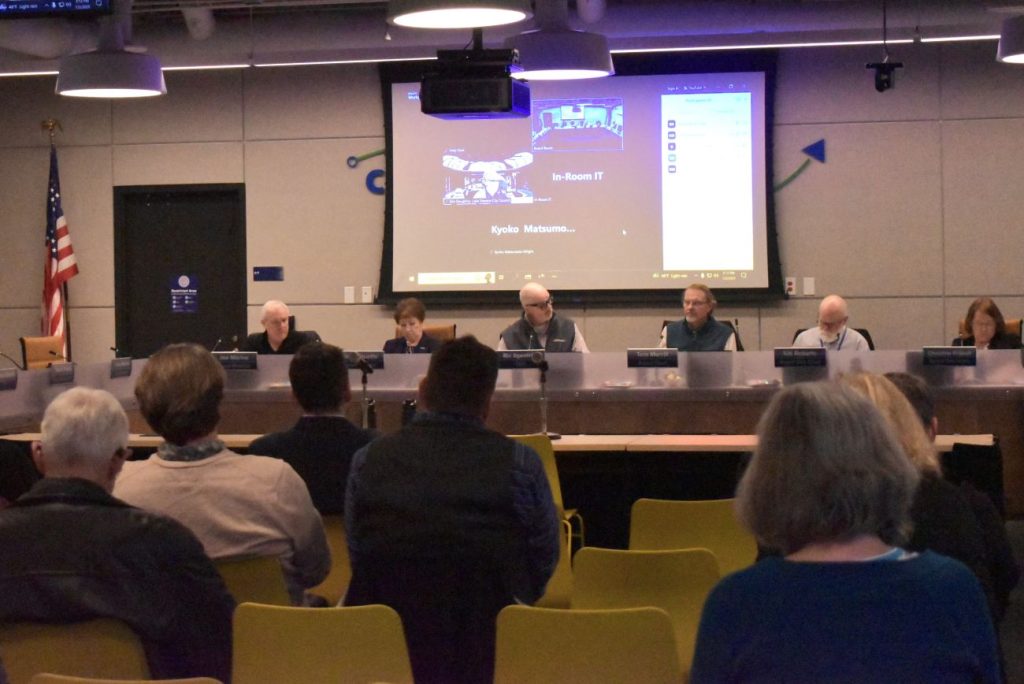EVERETT—At its first meeting of 2025 on January 2, the Community Transit Board of Directors approved a Sustainability Policy and authorized its CEO Ric Ilgenfritz to implement a five-year Sustainability Action Plan based the three pillars of people, planet, and prosperity. The agency defines sustainability as “the processes and methods used to protect the environment, foster financial stewardship, and provide for the well-being of others.”

“Our mission is to serve our community by giving people convenient, affordable and environmentally-friendly options for getting around,” said Community Transit CEO Ric Ilgenfritz. “The Sustainability Action Plan ensures that sustainability is embedded into every facet of our culture and business, enabling us to contribute to a healthier, more connected, and economically vibrant region.”
The Sustainability Leadership Team mapped out the five-year commitment by identifying goals and tactics and considering the implications of proposed strategies. The Sustainability Action Plan creates goals that will be renewed every five years. Community Transit will report annually on accomplishments from the previous year.
2025-2030 Sustainability Action Plan Goals and Tactics
Strategic Priority: People
Nurture the internal sustainability culture
- Integrate the agency sustainability key strategic priority as part of employee Core Points.
- Host events, educational sessions, and bring sustainability into conversations.
- Integrate sustainability into all Community Transit events
Increase employee retention
- Engagement Survey result action plan
- Support Worker’s Compensation Light Duty Program
- Explore ways to increase employee benefits
- Standardize onboarding process for all employees
Improve access and accessibility for employees & customers
- Simplify fares and increase access to reduced fare options
- Improve equitable access to information
Increase external awareness of sustainability efforts
- Continually update the sustainability page of the Community Transit website
- Install bike rack demo station at Lynnwood Transit Center
- Engage in community and regional events
Strategic Priority: Planet
Develop greenhouse gas inventory to inform ongoing emissions reduction efforts
- Create greenhouse gas inventory and emissions rate for agency buildings
- Reduce vehicle greenhouse gas emissions impacts where possible
Reduce solid waste generation through prevention and diversion
- Create and execute an overhauled waste program to increase waste diversion rate
Reduce water consumption and promote stormwater stewardship
- Create product standards for Community Transit spaces for consistency of materials and design
- Reduce impacts of construction of facilities
- Conduct a sustainability multi-step review of projects in design
Strategic Priority: Prosperity
Improve community resilience through continuity of operations and emergency management efforts
- Revitalize Emergency Operations and Business Continuity processes
Prioritize procurement of sustainable goods and services
- Review vendor contracts and realign with agency sustainability commitments
- Develop a Small Business Program to include regional economic development
Attract and retain customers through increasing access to frequent and reliable service
- Improve stop site infrastructure to increase customer accessibility, safety and comfort
- Increase service near populations with a high transit propensity
- Launch and evaluate success of Innovative Service pilots for Arlington, Darrington, and Lake Stevens
Current and Future Sustainability Efforts
Community Transit is already making significant strides toward its sustainability goals, including:
- Transitioning to a Zero Emissions Fleet: Reducing reliance on fossil fuels for a cleaner, greener future.
- Using R99 Diesel Fuel: Employing a lower-impact interim fueling solution during the transition to zero emissions.
- Long-Range Financial Planning: Ensuring sustainable operations and infrastructure investments.
- Workforce Sustainability Initiatives: Enhancing recruitment and retention to support a strong, engaged workforce.
Author: Lynnwood Times Staff










